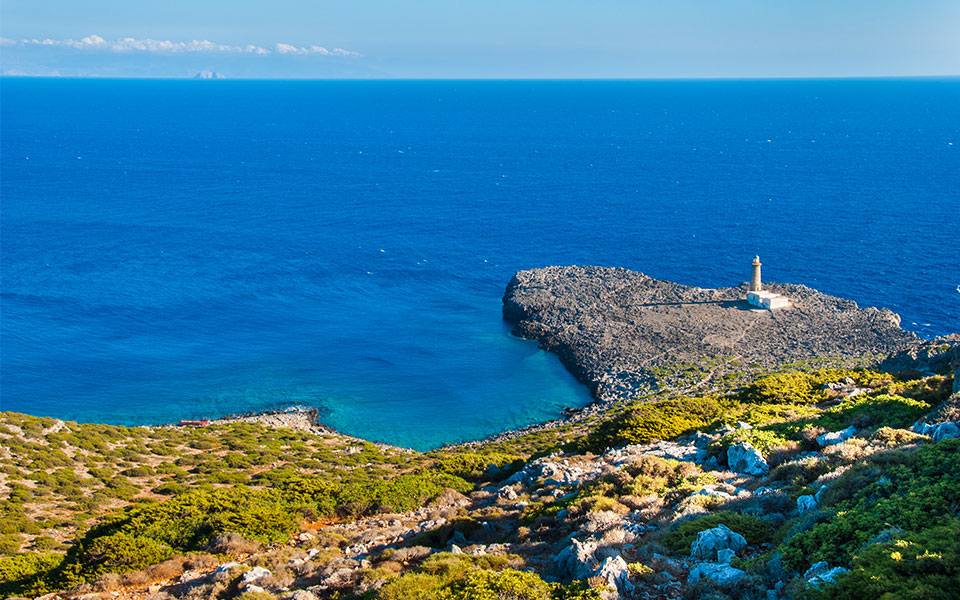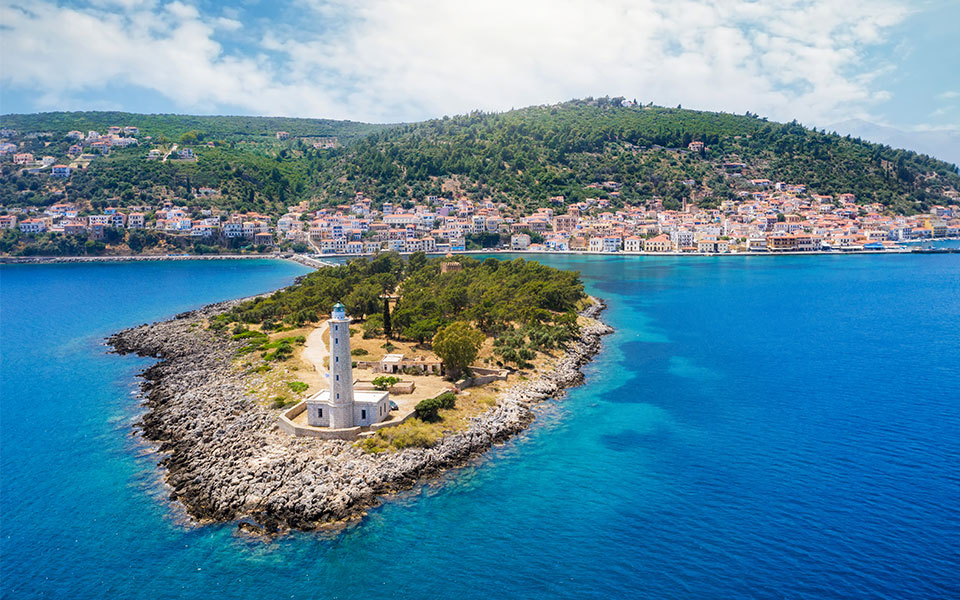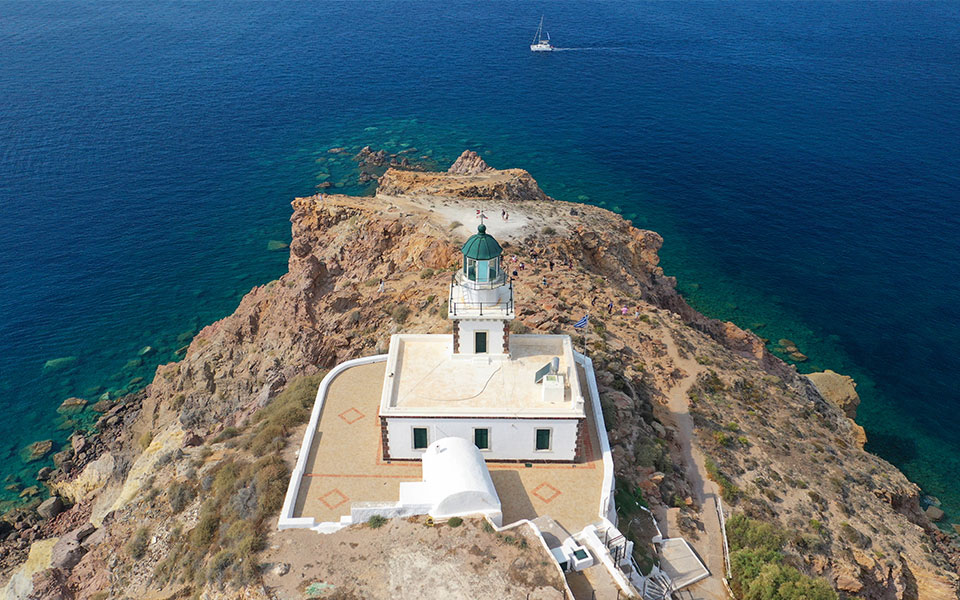A Maritime Legacy Reborn: Greece’s New Underwater Antiquities...
From ancient shipwrecks to treasures of...

The remote lighthouse of Apolitares on Antikythera, was once kept by the Russian admiral Nikolaos Filosofov (1867-1946).
© Shutterstock
You either see lighthouses from the land or from the sea. Their reassuring glow in the dark is a balm for those who travel, a clear reminder of human solidarity.
As a sailor, I have learned to recognize them, and to measure their beams of light and the duration of darkness to know where I am without the use of nautical charts and GPS. I therefore find the initiative of the Hellenic Navy to open them to the public once a year, every third Sunday of August, on the occasion of World Lighthouse Day, particularly commendable. It’s a first-class opportunity to highlight maritime heritage, which was met with a great response.
On August 21, more than 18,000 visitors went to 28 lighthouses across Greece, favorites being the lighthouses at Kranai in Gytheio, Arkitsa in Fthiotida and Akrotiri on Santorini, which gathered the most visitors.

The picturesque lighthouse at Kranai, Gythiou, hosts the most visitors every August 21st, World Lighthouse Day.
© Shutterstock
They are mostly monuments of architectural heritage that adorn caves and steep coasts. Every Greek lighthouse – we have around 120 traditional ones – has a story to tell about its location and the events it has “witnessed.”
Among the most special cases is the lighthouse at Apolitares, on Antikythera, at the far western end of the Aegean. It was built in 1926 and is visible within a radius of 36 nautical miles. Maintenance workers from the Hellenic Navy must use a special lightship to get there.
In the absolute solitude of this remote island, a very special man served our country, the Russian admiral Nikolaos Filosofov (1867-1946).

The Akrotiri lighthouse on Santorini is hugely popular with visitors.
© Shutterstock
He was of aristocratic origin, born in Saint Petersburg, a lover of music and literature. He studied at the Russian Imperial Naval Academy and was on good terms with the Tsar. He served as chief in various positions and in 1907, with one of his ships, he carried out a successful rescue of a floundering ship off the coast of Crete.
Ten years later, the Bolshevik Revolution turned his entire life upside down. He lost his two sons and his wife, and fled from Odessa on foot to Constantinople. In Greece he found himself hosted by the king in Tatoi, but melancholy consumed him. Instead of trying to socialize, he did the exact opposite and decided to continue his life as a lighthouse keeper.
In 1924 he took Greek citizenship and two years later was appointed to Antikythera, where he remained until 1933. He married a local woman and during the Second World War he did a lot to save the historical archive of Antikythera from the hands of the occupying Germans.
This article was previously published in Greek at ekathimerini.gr.
From ancient shipwrecks to treasures of...
Each summer, a growing number of...
From Santorini sunsets to ancient ruins,...
From Samos to Crete, we've selected...